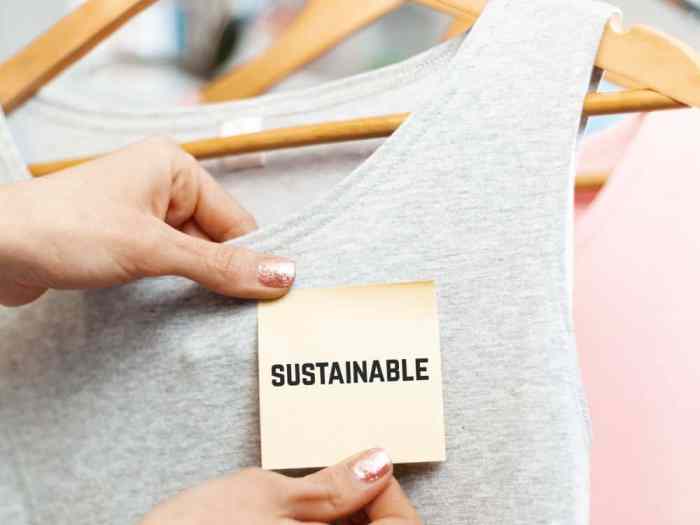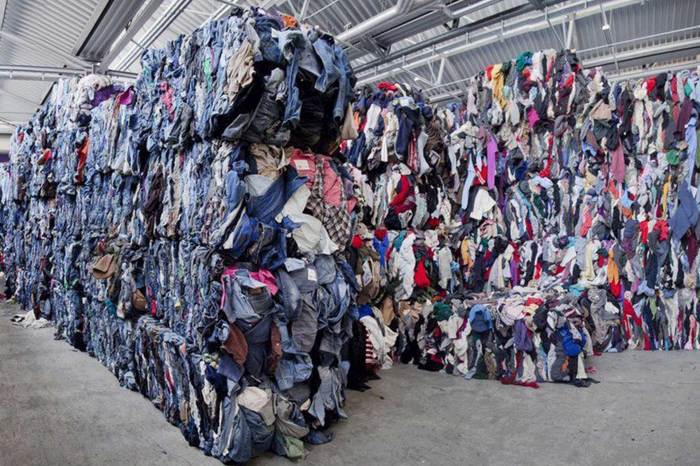Ethical fashion practices are more than just a trend – they’re a necessity in today’s fashion industry. From fair labor practices to sustainable materials, this overview will delve into the crucial aspects of ethical fashion, providing insight into its impact on both the environment and society.
Get ready to explore the world of ethical fashion practices in a way that’s informative and engaging, shedding light on the importance of conscious consumerism and responsible production methods.
Importance of Ethical Fashion Practices
Ethical fashion practices play a crucial role in the fashion industry by promoting sustainable and responsible production processes that benefit both the environment and workers.
Benefits of Ethical Fashion Practices
Implementing ethical fashion practices can have a positive impact on various aspects:
- Reduction of environmental footprint: Ethical practices focus on using eco-friendly materials and sustainable production methods, reducing pollution and waste.
- Improvement of working conditions: Ethical fashion ensures fair wages, safe working environments, and the prohibition of child labor, promoting social justice and human rights.
- Promotion of transparency: Ethical brands are transparent about their sourcing, production processes, and supply chain, allowing consumers to make informed choices.
Impact of Unethical Fashion Practices
Unethical fashion practices can have detrimental effects on society and the planet:
- Exploitation of workers: Unethical practices such as sweatshops and low wages lead to poor working conditions and violate labor rights.
- Environmental degradation: Unethical fashion often involves harmful chemicals, excessive water usage, and waste disposal, contributing to pollution and resource depletion.
- Social inequality: Unethical practices perpetuate inequality by exploiting vulnerable communities and disregarding basic human rights.
Key Principles of Ethical Fashion: Ethical Fashion Practices

Ethical fashion practices are guided by several key principles that aim to promote sustainability, fairness, and transparency in the fashion industry. These principles encompass various aspects of production, sourcing, and labor practices.
Transparency
Transparency is a crucial principle in ethical fashion, emphasizing the importance of openness and accountability in the supply chain. This involves disclosing information about how and where garments are produced, as well as the conditions in which workers operate. By being transparent, brands can build trust with consumers and demonstrate their commitment to ethical practices.
Fair Wages
Fair wages are another fundamental principle of ethical fashion, ensuring that workers involved in the production process are paid fairly for their labor. This includes providing living wages that cover basic needs such as food, shelter, and healthcare. By paying fair wages, brands can help improve the livelihoods of garment workers and reduce the prevalence of exploitative labor practices in the industry.
Sustainable Sourcing
Sustainable sourcing focuses on the environmental impact of fashion production, emphasizing the use of eco-friendly materials and processes. This principle encourages brands to minimize waste, reduce carbon emissions, and prioritize the use of renewable resources. By sourcing materials sustainably, brands can lessen their environmental footprint and contribute to the conservation of natural resources.
Circular Fashion
Circular fashion is a concept that promotes a closed-loop system in which clothes are designed, produced, and recycled in a continuous cycle. This approach aims to minimize waste and extend the lifespan of garments through practices such as recycling, upcycling, and reusing. By embracing circular fashion, brands can reduce their reliance on virgin resources and contribute to a more sustainable and circular economy in the fashion industry.
Sustainable Materials in Ethical Fashion
When it comes to ethical fashion, the use of sustainable materials plays a crucial role in reducing environmental impact and promoting responsible practices within the industry.
Organic Cotton
Organic cotton is one of the most commonly used sustainable materials in ethical fashion. It is grown without the use of harmful chemicals, pesticides, and genetically modified organisms. This not only protects the environment but also ensures the well-being of farmers and workers involved in the production process.
Recycled Polyester
Recycled polyester is another sustainable material that is gaining popularity in the fashion industry. It is made from post-consumer plastic bottles, reducing waste and decreasing the reliance on virgin polyester production, which has a high environmental impact.
Tencel (Lyocell)
Tencel, also known as Lyocell, is a sustainable fiber made from wood pulp. It is produced in a closed-loop process that minimizes waste and water usage. Tencel is biodegradable and has a significantly lower environmental impact compared to traditional fibers like cotton.
Examples of Brands
- Patagonia: Patagonia is a well-known outdoor clothing brand that incorporates recycled materials like polyester into their products, reducing the demand for virgin resources.
- Reformation: Reformation is a sustainable fashion brand that uses Tencel in their collections, prioritizing eco-friendly materials and ethical production practices.
- People Tree: People Tree is a fair trade fashion brand that utilizes organic cotton in their garments, supporting farmers and promoting sustainable agriculture.
Ethical Production Processes
In the fashion industry, ethical production processes are crucial for ensuring fair treatment of garment workers and reducing exploitation. By implementing fair labor practices, safe working conditions, and fair wages, brands can make a positive impact on the lives of those involved in the production of clothing.
Importance of Fair Labor Practices
Fair labor practices in the production of clothing are essential to protect the rights and well-being of garment workers. This includes ensuring that workers are not subjected to long hours, low wages, or unsafe working conditions.
Significance of Safe Working Conditions and Fair Wages, Ethical fashion practices
Safe working conditions and fair wages are fundamental aspects of ethical production processes. Garment workers deserve to work in environments that are free from hazards and to receive compensation that allows them to support themselves and their families.
Contribution to Reducing Exploitation
Ethical production processes play a key role in reducing exploitation in the fashion industry. By prioritizing the well-being of garment workers and treating them fairly, brands can help combat issues such as child labor, forced labor, and unsafe working conditions.
Ethical Fashion Certifications

Certifications like Fair Trade, GOTS, and B Corp play a crucial role in verifying ethical fashion practices. These certifications help consumers identify brands that follow ethical standards and prioritize sustainability.
Fair Trade Certification
Fair Trade Certification ensures that workers involved in the production process are paid fair wages and work in safe conditions. Brands with this certification commit to ethical sourcing and production practices, promoting social and environmental responsibility.
GOTS Certification
GOTS (Global Organic Textile Standard) Certification focuses on the use of organic fibers and sustainable production processes. It verifies that textiles meet strict ecological and social criteria, from harvesting raw materials to labeling the final product.
B Corp Certification
B Corp Certification is awarded to companies that meet high standards of social and environmental performance, transparency, and accountability. Brands with this certification are committed to balancing profit with purpose and are held to rigorous ethical standards.
Identifying and Supporting Ethical Brands
Consumers can look for logos or labels indicating Fair Trade, GOTS, or B Corp certifications when shopping for ethical fashion. By supporting brands with these legitimate certifications, consumers can contribute to a more sustainable and ethical fashion industry.



